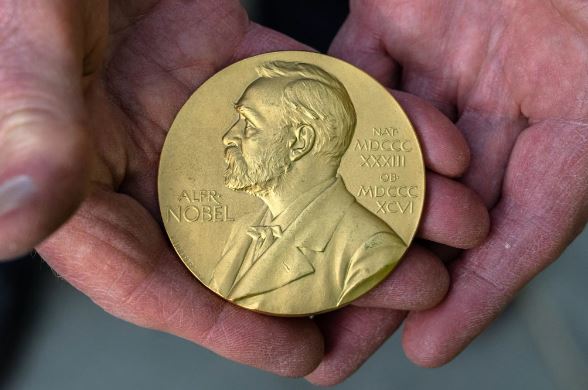Being awarded the Nobel Prize is a momentous occasion. Winners receive immediate global attention and, for many scientists, the award marks the pinnacle of their careers.
Epidemiologist John Ioannidis of Stanford University is curious. While he acknowledges that prizes like the Nobel are “a major reputational tool,” he wonders “whether they really help scientists become more productive and impactful.”
Attempting to evaluate whether large prizes advance science, a team of academics led by Dr. Ioannidis published a study in the journal Royal Society Open Science in August. The group examined the relationship between age and post-award output by analysing the publishing and citation patterns of scientists who had received a Nobel Prize or a MacArthur Fellowship, the so-called “genius grant.” The study concluded that the influence of the winners of both awards was almost the same.
Although experts have varied views on what elements are most important, the study contributes to a corpus of work that seeks to explain the ways in which prizes impact how science is done.
Since 1901, the Nobel Foundation has presented awards for outstanding contributions to the fields of physics, medicine, and chemistry (as well as peace, literature, and, beginning in 1969, economic research). In contrast to the Nobel Prizes, the MacArthur Fellowship has been awarded from its inception in 1981 because of the promise it represents to the recipient.
Dr. Ioannidis’s group examined Nobel laureates from both fields to assess the impact of seniority on research output. Compared to MacArthur fellows, Nobel laureates tend to be older and further along in their careers.
The researchers looked at a sample of this century’s 72 Nobel laureates and 119 MacArthur fellows, comparing their publishing and citation rates in the three years before and after they were honoured with the prizes. Dr. Ioannidis explained that although the number of a scholar’s publications indicated how much new work they were creating, the number of citations indicated how much of an influence their work was having in the area.
His group discovered that Nobel laureates continued to produce the same number of publications both before and after obtaining the prize, but the latter received far less citations. In contrast, MacArthur fellows increased their publication output by a little margin, but saw no change in the number of citations to their work. After receiving their awards, both Nobel laureates and MacArthur fellows saw a decline in the number of citations their papers received.
The group discovered that winners of both awards who were 42 years old or older had dropping citation and publication counts after winning. The researchers found that grantees who were 41 or younger wrote more and were mentioned more frequently, indicating that age had a factor in the scientific production of recipients.
But according to Harriet Zuckerman, a sociologist at Columbia University who has spent her career studying the lives and accomplishments of Nobel laureates, it is challenging to boil productivity down to such basic criteria. When trying to generalise across many scientific disciplines with various publication and citation norms, the challenge level rises. In order to allow junior researchers an opportunity to shine, established researchers in some disciplines may choose to forego authorship credits.
Dr. Zuckerman has investigated how the publishing and citation patterns of Nobel laureates changed with age, career stage, and other circumstances, but she does not necessarily connect this to productivity. The greatest change, she discovered, was the result of exposure to celebrity, an issue that Nobel laureates likely face more frequently than MacArthur geniuses.
Andrea Ghez, an astrophysicist at the University of California, Los Angeles, acknowledged that the gap between being named a MacArthur fellow at the age of 43 and being named a Nobel physics laureate at the age of 55 is significant. Dr. Ghez has had an influence beyond the realm of publications and citations, including serving as a role model for women and advocating for the value of science.
It’s also possible that Nobel laureates’ output declines because they reach a creative plateau in their chosen field and decide to branch out into something new.
Dr. Wang discovered that this caused a brief slowdown in publication frequency, but that it quickly recovered after three years. He has stated that this should be seen positively.
Dr. Ghez claims that winning a Nobel Prize inspires recipients to take risks and aim higher in their work. “Transformative work is well known for not being well measured by citations,” she explained.
Dr. Ioannidis recognises that measuring productivity just by the number of publications and citations misses the bigger picture.
Until there is evidence to the contrary, Dr. Ioannidis believes it is worthwhile to speculate on the consequences of the prizes and to encourage the community to reflect on how to produce more rigorous, meaningful work. What Dr. Ioannidis called “the best thing that can happen to humans” was the advancement of scientific knowledge. However, he noted, figuring out how to maximise its potential remains an open scientific subject.

